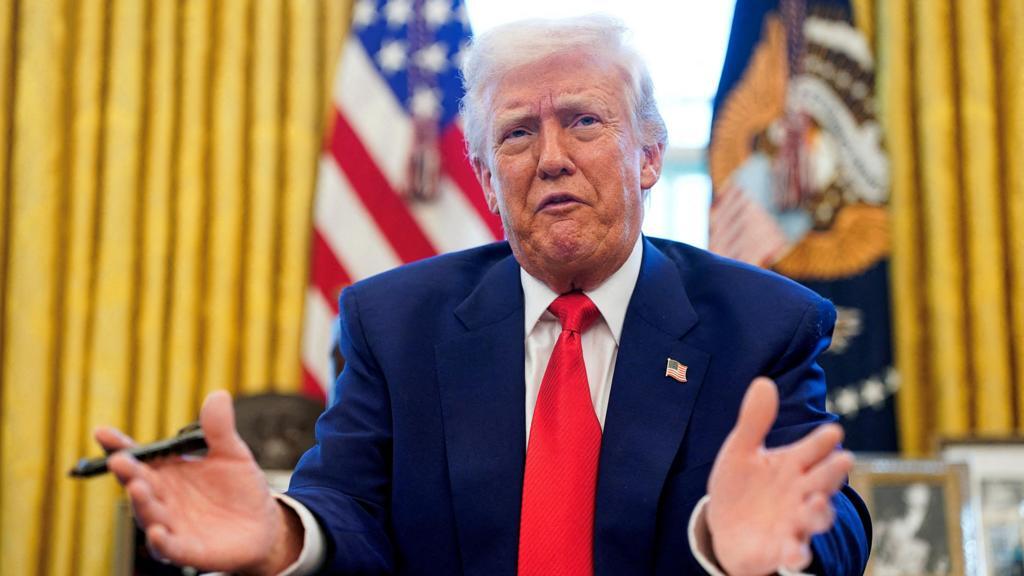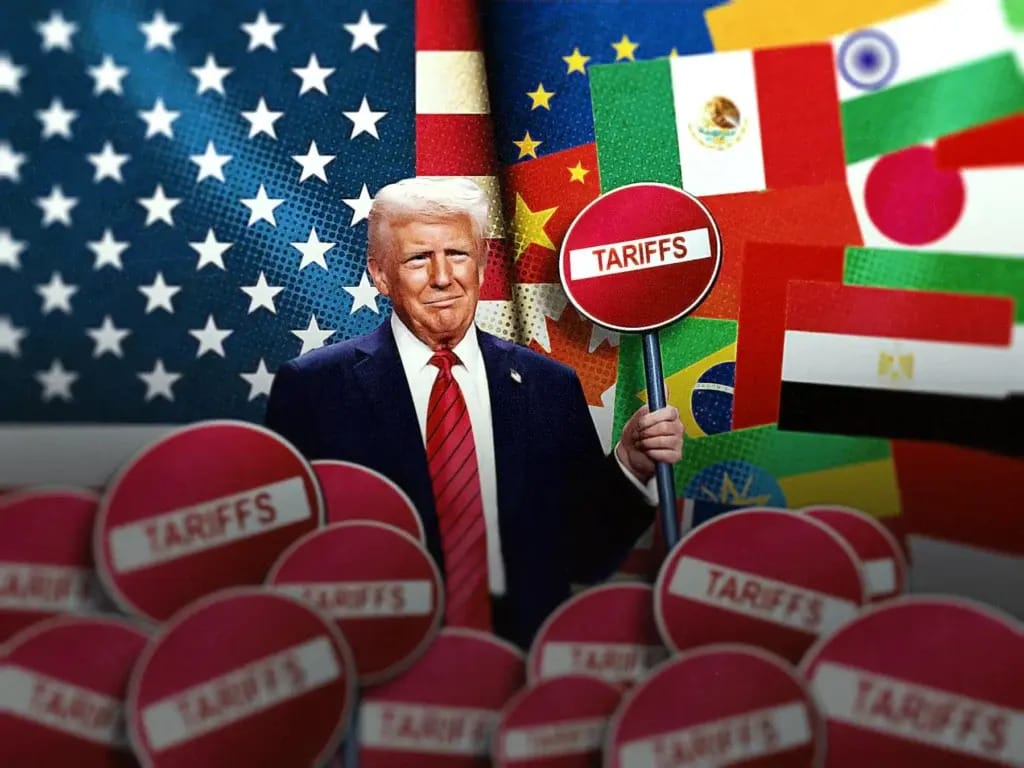- Cyborg Wealth
- Posts
- U.S. economy contracts 0.3% amid Trump trade wars
U.S. economy contracts 0.3% amid Trump trade wars
Tariffs Trigger First Economic Decline in Three Years as Uncertainty and Inflation Fears Rise
The U.S. economy shrank by 0.3% in the first quarter of 2025, marking its first contraction in three years and signaling a sharp reversal from the 2.4% growth recorded in the final quarter of 2024. This downturn has been widely attributed to the disruptive effects of President Donald Trump’s aggressive trade policies, particularly the imposition of steep tariffs on imported goods.
Key Drivers of the Contraction
Surge in Imports Ahead of Tariffs: The primary factor behind the contraction was a significant spike in imports, as American businesses rushed to stockpile foreign goods before the new tariffs took effect. This front-loading of imports widened the trade deficit, which subtracted about 5 percentage points from GDP growth in the first quarter.
Slowdown in Consumer Spending: Consumer expenditure, a major driver of the U.S. economy, slowed sharply during the quarter, compounding the negative impact of the trade imbalance.
Deceleration in Government Spending: Federal government spending also declined, likely due to aggressive budget cuts and program closures initiated by the Trump administration.

Impact of Trump’s Trade Policies
President Trump’s unpredictable trade strategies, including imposing tariffs as high as 145% on Chinese imports, have disrupted business planning and contributed to economic uncertainty. These tariffs, designed to protect American industries, have instead led to:
Higher costs for businesses and consumers, as tariffs function as a tax on imports.
Increased uncertainty, causing major companies to withdraw financial forecasts and dampening business investment.
Declining consumer confidence, with sentiment dropping to its lowest point in over a decade.
Market and Political Reactions
The contraction triggered a negative response in U.S. stock markets, with all major indices posting significant declines following the GDP report. President Trump dismissed claims that his tariffs were to blame, instead attributing the downturn to what he called the “Biden overhang” from the previous administration. However, economists and business leaders have largely pointed to the trade policies as the main cause of the economic weakness.

Outlook
While some analysts expect a potential rebound in the second quarter as the import surge subsides, persistent uncertainty and elevated tariffs may continue to weigh on growth. There are growing concerns about the risk of stagflation-a combination of sluggish growth and rising prices-if trade tensions are not resolved.
Summary Table: Key Economic Indicators (Q1 2025)
Indicator | Q4 2024 | Q1 2025 | Notes |
|---|---|---|---|
GDP Growth Rate | +2.4% | -0.3% | First contraction in three years |
Imports | Stable | Surge | Businesses rushed to beat tariffs |
Consumer Spending | Robust | Slowed | Major contributor to GDP drop |
Government Spending | Stable | Declined | Due to budget cuts and program closures |
Stock Market Reaction | Gains | Declines | All major indices fell after GDP report |
Tariff Policy | Announced | Implemented | Up to 145% on Chinese goods |
The first-quarter contraction underscores the economic risks associated with abrupt and sweeping trade policy changes, as well as the broader uncertainty facing businesses and consumers under the current administration’s approach to global trade.
The world is changing fast, and economic headlines like these can impact your business, your investments, and your future. Don’t get left behind. Subscribe to our newsletter today to receive clear, expert analysis and timely updates on the stories that matter most. Join a community of informed readers who get the facts first-and make smarter decisions because of it.
Hit “Subscribe” now and never miss an important update!
Reply